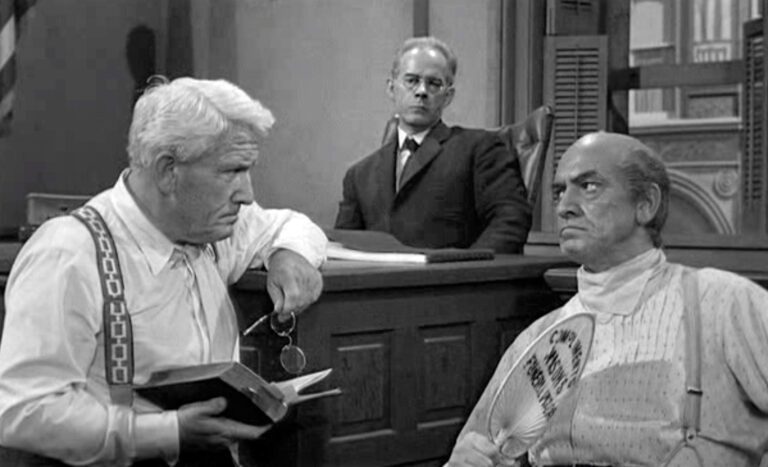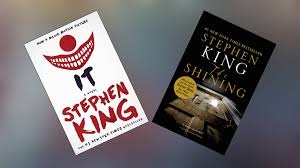Inherit the Wind is a timeless play that explores themes of freedom, science, and tradition in the face of censorship and McCarthyism.
I do not usually watch a film based on a book or a play until I have read the book or play in question. The reason for this is that I invariably find the book more enjoyable than the film version (with a few notable exceptions like ‘The Godfather’). In the case of ‘Inherit the Wind,’ I watched the 1960 movie starring Spencer Tracy and Frederic March at a film festival in Delhi in the early nineties, well before I read the play on which it was based. I was blown away by the film, which explored themes dear to my heart.
I searched for the original play in all the libraries I was a member of, but to no avail. Now, in the internet age, the play is easy to find online, but in those pre-internet days, the only recourse was the library. Meanwhile, I also watched one of the remakes of the film made in 1999, this one starring Jack Lemmon and George C. Scott. Again, the on-screen dynamics held me spellbound. In fact, the play was remade three times on film and had several Broadway productions.
Rediscovering ‘Inherit the Wind’
Finally, I managed to get a copy of the play at the Daryaganj Book Market in 2001. I was saving the book, as I tend to do with every book that I expect to enjoy. The book got lost among the many on my shelves. Then, this month, our Book Lovers Club decided that the theme for the month was ‘Tradition versus Change,’ and members should try to read a book on this theme and discuss it at the next meeting. Racking my brain as to what I should read, I suddenly remembered the book. A few minutes of pawing through the shelves brought the book to light, and I finally began to read it.

To say I enjoyed the play would be the understatement of the century. Right from the first page, I found a plethora of quotable lines. I read each page multiple times to fully appreciate the language and the thoughts expressed by the writers. The play explores themes such as tradition versus change, science versus religion and superstition, a satire on McCarthyism, a paean for free thinking and the right to freedom of speech and thought, and the role of religion in society—the list goes on. I found the play more relevant than ever in 2023, a year when the conflicts depicted in the play written in 1955 are just as prevalent and the issues addressed just as pertinent.
I kept thinking while reading the play that my grandfather, one of the earliest rationalists and free thinkers in Kerala (who also happened to be a lawyer), would have really enjoyed the play. His crusades against blind belief and superstition earned him severe criticism and even the enmity of powerful entities, including the Church. While reading, I realised that society, or at least certain sections of it, have remained where they were in the last century and may even have regressed.
A theatrical exploration
On to the play itself. ‘Inherit the Wind’ is a play written by Jerome Lawrence and Robert E. Lee, based on the Scopes Monkey Trial of 1925 in which a Tennessee teacher was tried for teaching Darwin’s Theory of Evolution. The play is a fictionalised account of the trial and was first published in 1955. The play is set in Hillsboro, a small town in Tennessee, and revolves around the trial of a high school science teacher accused of teaching evolution in violation of state law. The trial becomes a media circus, with two legal giants of the century battling it out in court.

As explained earlier, the play explores themes such as freedom of thought, the role of religion in society, and the conflict between science and religion. The role of Matthew Harrison Brady is intended to reflect the personality and beliefs of William Jennings Bryan, while that of Henry Drummond is intended to be similar to that of Clarence Darrow. Bryan and Darrow, formerly close friends, opposed one another at the Scopes trial.
The character of E. K. Hornbeck in the play is modeled on that of H. L. Mencken, who covered the trial for The Baltimore Sun, and the character of Bertram Cates corresponds to Scopes. The cynical reporter Hornbeck has some of the best lines in the play, satirising and lampooning the obscurantist Bryan and most of the ultra-conservative public of Hillsboro.
Jerome Lawrence explained in a 1996 interview that the play’s purpose was to criticise the then-current state of McCarthyism. The play was also intended to defend intellectual freedom. According to Lawrence, ‘we used the teaching of evolution as a parable, a metaphor for any kind of mind control […] It’s not just about science versus religion. It’s about the right to think.’ The play includes a rather weak romantic subplot clearly tailored for Broadway.
I raced through the play in a few hours despite going back to read some of the dialogue a second time. This is a play for the ages, one that is topical and relevant even today and one that anyone who values freedom of thought and expression should read. George Orwell was prophetic, and a Big Brother could become a reality forty years after 1984 unless you heed the message sounded by books like these. You have been warned.





2 Comments
Enjoyed. I presume your grandfather mentioned in the narrative was Late Sri M C JOSEPH, Advocate and atheist, par excellence, a close friend of my grandfather late Dr Pappoo. I am Jeevo, son of late K P Eliamma (Ealikkutty), his first daughter.
Yes. My grandfather was late M.C.Joseph. I am settled in Irinjalakuda, near Dr. Pappoo’s house. Do drop in when in Irinjalakuda.